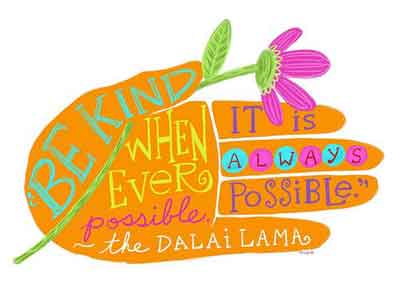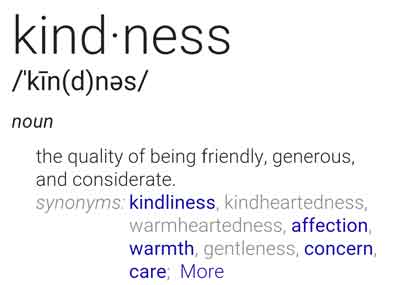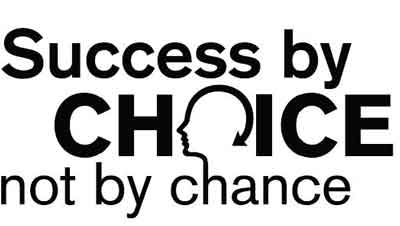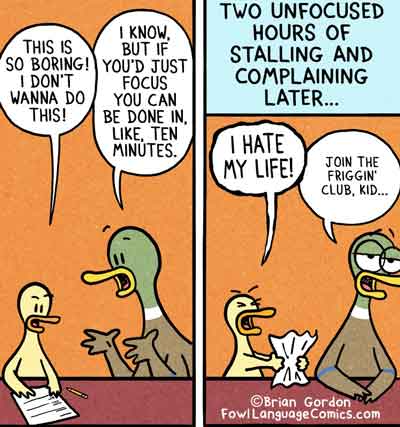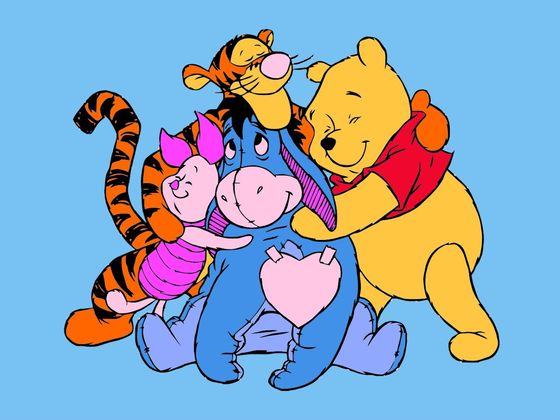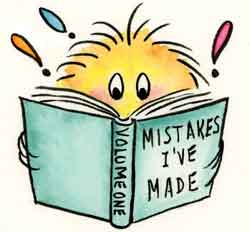
In Oklahoma, we have a saying, and you may have a similar one in your language as well.
Never criticize a man until you’ve walked a mile in his moccasins.
Although we never really know what someone else is going through, empathy can certainly help us to practice kindness with others. I’ve been struggling a bit lately. The reasons, big or small, aren’t really relevant here. It happens to all of us from time to time.
Recently, in two completely unrelated situations, I received a touching gift.
Both came from out of the blue as an unexpected expression of thanks. These were specific acts of kindness, which made me more aware of all the random acts of kindness I am fortunate to experience every day in my life. Moreover, I realized that I myself need to be kinder to others in the world. This week’s blog, late post though it is, suggests 5 specific ways we can offer random acts of kindness toward others to show some empathy, to show some humanity, and to make a positive impact on another’s life.

Smile At Strangers

Smiling is so easy to do. It costs so little, just the movement of a few muscles. Nonetheless, a smile can make some one’s day. A smile says I see you. You exist. You matter to the world.
Personally, I have to make a concentrated effort to smile at others as I go through my day. I’m generally stressed by deadlines both of others’ and my own making. I’m often analyzing, planning, or writing in my head as I move through the world, so focused on the upcoming that I ignore the now.
Thus from time to time, I check myself, noticing my concentrated leave-me-alone face. As I walk by others, I meet their eyes. I smile. They smile back. Positive energy has transferred from one to another. Just like that, an act of kindness has occurred.
Try smiling at strangers. You’ll feel good. They’ll feel good. The world will be a better place for your smiles.
Offer Compliments

It is actually quite easy, with a bit of practice, to give compliments to others. This is something I am quite good at since I have practiced it extensively for teaching purposes. Now, I can give compliments as easily as I breathe. You could too with a bit of practical advice and practice.
The complimenting guidelines are easy to understand. When complimenting strangers, you should make sure to stay in the safe zones so that your kindness isn’t confused for sexual interest. The further away from the core of the body, the better the kind word will be. The safest complement begins with “I like your…” or “That is a great…”
Some people go through their entire day feeling alone and ignored, feeling like they are not part of the world. A simple kind “I like your bag” or “that is a great hat!” is an easy way to practice random acts of kindness and change the world.
Try it. Say something nice to a stranger today. You could very well find, like I did, that the flash of joy you provide to another is quite addicting.
Open Doors

I grew up in a small Midwest town where polite behavior was the norm, not the exception. Opening doors for others, holding elevators, saying hello—this was just the way it was. Fast forward to 2017 in a major metropolis with everyone self-absorbed in their own cell phones and their own problems, the social niceties are few and far between.
At IVC, where I am currently fortunate to be teaching, people hold doors open for others. I have bags and bags of stuff at school in addition to my drink, my hat, my glasses, and the list goes on and on. My hands are always full. Without fail, people open doors for me. They hold the door when they see I am behind them. Now, this is a tiny minor act of kindness. Yet I am touched every time. Someone holds a door for me, and I feel like the queen of the world. Every. Single. Time. These strangers don’t know that they are shining a bright ray of kindness on my day. Of course, I say thank you, but I doubt they hear me. They don’t know that such a small act of kindness can make a positive difference in a difficult day.
If you too want to practice easy yet wonderful acts of kindness for others, try opening and holding doors. Little by little, we can change the word one act at a time.
Let Someone Go Ahead

You’re busy, I know. I get it. I am too. I haven’t been to the grocery store in two weeks. We are out of soda and fruit. My lettuce looks like someone ran over it with a bus. I’m trying to find time in my schedule today to get to the store or I won’t be able to go until Sunday, and that’s a holiday. Ugh! I’m busy. You’re busy. I know.
Regardless, if I let someone go ahead of me in line at the grocery store, at Target or in the coffee shop, how much time am I really losing? 5 minutes? 10? How much will those lost minutes really matter to my day over the course of my very busy life?? How much could the kind act of matter in the life of another? I think those minutes are worth it for the reward they provide.
I let people go ahead of me in line often. In fact, doing so is one of the random acts of kindness that I try to make part of my routine. When I’m in line, I keep my eyes open. If someone comes up behind me with less merchandise (which is easy to do since I shop like I’m feeding a horde of teenagers rather than two people and a cat), 90% of the time I offer to let them go ahead of me. Here’s what I do. I meet their eyes, smile and say “You can ahead of me if you’d like. I’m in no hurry.” The flash of surprise and joy I see on their faces is sublime. “Really?!” they exclaim more times than not. “Are you sure?” And when I respond with my smiling absolutely, I feel like I have single-handedly brought about world peace. Seriously, it feels that great to make a difference in someone’s life. Try it. You’ll like it.
Let Cars Go Ahead

This random act of kindness is actually one of the hardest for me. Living in Southern California, we don’t talk about distance in getting somewhere. We talk about time and time is based on traffic. Ah, traffic—the bane of existence in California. No matter where or when you go, everyone else is going there too. Angry, busy, stressed out individuals all going the same direction at the same time can create a seriously selfish, ugly car culture. What a better time to practice random acts of kindness.
I actively try to let in one driver every time I go somewhere. I feel so lucky to have my beloved M-5 convertible, a car I had wanted the whole of my life. So, to pass on my gratitude, I let others go ahead of me.
The difficulty is getting them to go without running me over or without letting in a stream of cars. You let one go, then another pushes its way past, and before you know it, people behind you are honking and cursing and ahhhhh, the kindness seems wasted somehow in the crazy competition for space that is So. Ca. driving. Nevertheless, I persist. Every time I drive on surface streets or merge in traffic, I try to let a car or two go ahead.
I’m not sure, honestly, how my little random act of kindness is taken by the drivers. I know I am always pleased and grateful when someone lets me in, but I don’t see the gratitude, if there is any, on their faces the same way I might in a store. I go on faith that my random act of kindness is making a difference, however slight, in a big difficult world.
Random acts of kindness are never wasted. Web sites abound online offering suggestions for being kind to others. There’s even a new idiomatic phrase “pay it forward” based on the time-honored principle of doing to others what you would like them to do for you. Honestly, I have yet to pay it forward – to pay for someone’s dinner or coffee anonymously—I’m not opposed to the idea; I just have not had the opportunity nor the means. For me, though, I can give something just as precious as money — , my time, my energy, my actions– I can pay that forward. I am also fortunate to receive such kindness back most days.
How about you? Can you find some ways to practice doing random acts of kindness for others?
